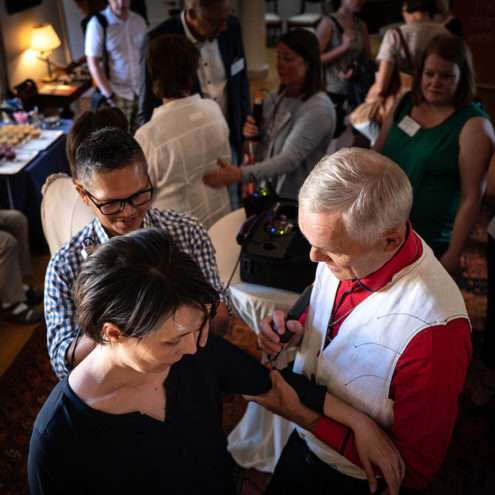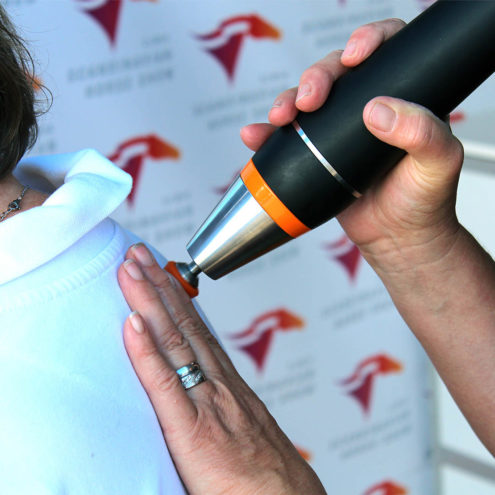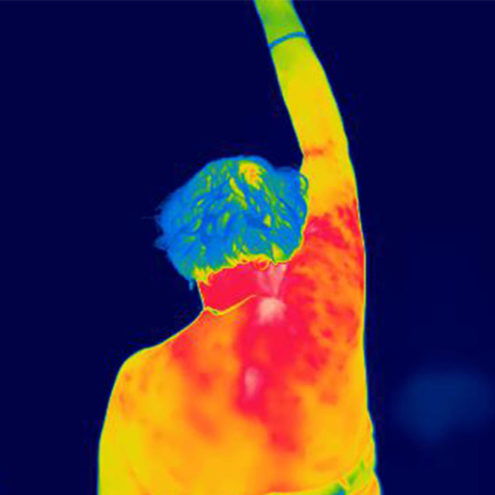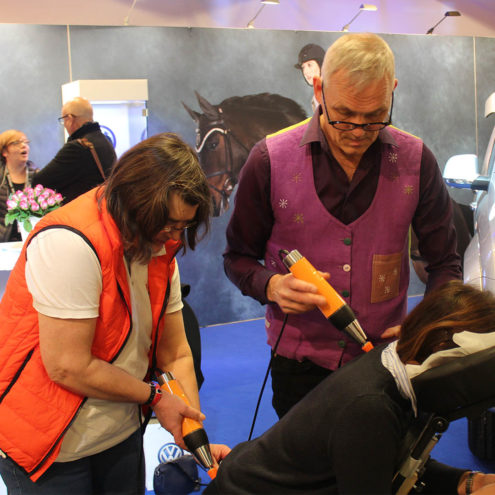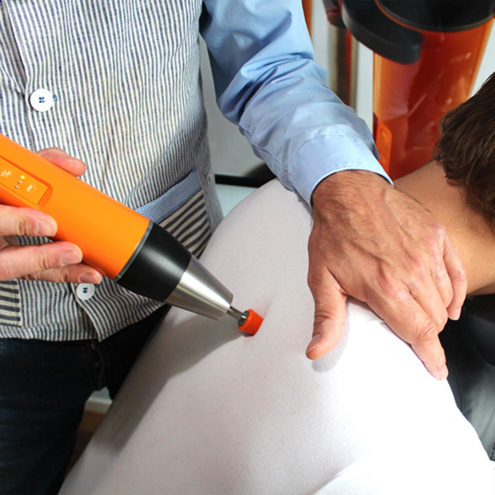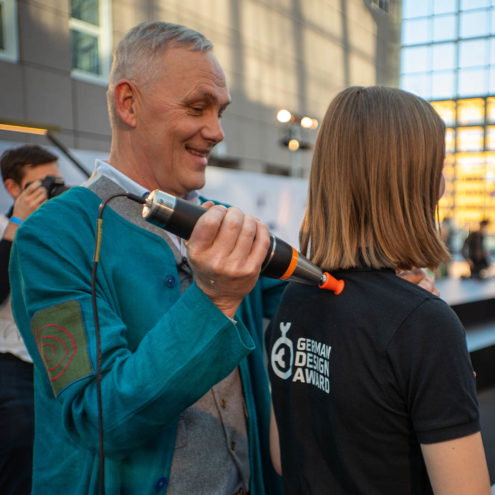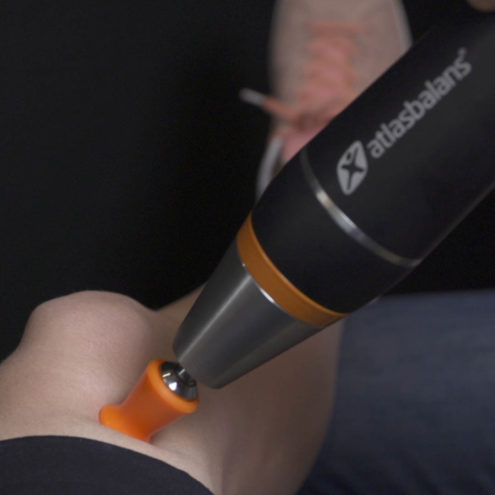Muscle tear in the shoulder

What is a muscle tear in the shoulder?
A muscle tear in the shoulder occurs when the muscle fibers (muscle cells) are overloaded and damaged. This can happen if the muscle is stretched suddenly or during a movement where it cannot cope with the load. A stretch means that the muscle has been stretched beyond its normal capacity. If only part of the muscle is injured, it is called a partial rupture. If the whole muscle is torn off, it is called a complete rupture.
What causes muscle tear in the shoulder?
There are several possible causes of shoulder muscle strain. One of the most common causes is the shoulder being subjected to a heavy or unexpected load, such as a fall or heavy lifting. Certain sports can also increase the risk of shoulder muscle rupture, especially where the shoulder is subjected to repetitive movements, such as swimming, tennis or basketball. Repetitive manual work can gradually overload the muscles in the shoulder and increase the risk of tears. Ageing and wear and tear of the shoulder muscles can, over time, weaken them and the risk of tears increases. It is important to note that the causes can vary and it is important to consult a doctor or a fascia treatment specialist to determine the specific cause of your shoulder muscle tear.
Symptoms of muscle tear in the shoulder
The typical symptoms of shoulder muscle strain include pain, swelling of the affected muscles and limited mobility. Symptoms can be intense and affect your daily activities.
What should you think about when you have a muscle tear in the shoulder?
When you have a torn muscle in your shoulder, there are a few things you should keep in mind to facilitate healing and avoid further injury. Firstly, it is important to rest the shoulder and avoid movements that cause pain or discomfort in the injured area. Applying cold to the injured area can help reduce swelling and relieve pain and inflammation. It is also important to follow the doctor’s recommendations and possibly use compression bandages to stabilize and protect the shoulder.
Treatment of muscle tear in the shoulder
Treatment methods for shoulder muscle tears can vary depending on the degree of injury. For minor tears, the RICE method can be effective. RICE stands for Rest, Ice, Compression and Elevation. Rest is important to avoid overstretching the muscle and promote healing. Applying cold to the injured area can reduce inflammation and swelling. Compression helps to stabilize the muscle and reduce swelling. Keeping the arm elevated above the level of the heart when resting helps to reduce swelling and promote healing. For more severe tears, medical treatment may be necessary, including the use of painkillers and physiotherapy to restore strength and mobility to the shoulder. In some cases, surgery may be necessary to repair a total tear or a tear that does not respond to conservative treatment.
Fascia treatment for muscle tear in the shoulder
Fascia treatment can be an excellent complement to traditional treatment for a torn shoulder muscle. Fascia is the network of connective tissue that surrounds and connects muscles, ligaments and other structures in the body. Working on the fascia can help reduce tension, improve blood circulation and promote healing. It is important to consult a certified fascia treatment specialist to get advice based on your specific situation and symptoms.
Frequently asked questions about muscle tear in the shoulder
How long does it take to recover from a muscle tear in the shoulder?
The recovery time for a shoulder muscle tear can vary depending on the severity of the injury, but generally a minor tear can heal within a few weeks, while a major injury can take several months. Attending fascia treatment can help speed up recovery by promoting healing and restoring function to the shoulder.
Can I continue to exercise with a muscle tear in my shoulder?
It depends on the severity of the injury. Mild to moderate injuries can often be managed with adapted exercise routines that do not strain the injured shoulder. However, it is important to avoid activities that cause pain or discomfort and not to overwork the muscle. More serious injuries may require total rest and rehabilitation before returning to physical activity. Always consult your doctor or a physiotherapist for individual advice and customized exercise recommendations.
How can fascia treatment help with a muscle tear in the shoulder?
Fascia treatment can help reduce tension, increase blood flow to the injured area. This promotes the body’s own healing process. Working on the fascia can help restore function to the shoulder. Better function can help prevent future injuries and recurrent problems.
Taking a holistic and individualized approach to treatment and recovery from shoulder muscle tears can optimize outcomes and reduce the risk of re-injury. Consulting a specialist and attending fascia treatment can give you the expertise and guidance you need to begin an effective treatment plan and regain your arm function in the best possible way.
 Search
Search



